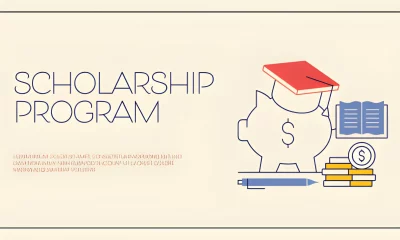Educational Terms
What is Academic Advising? Definition, Types, Roles & Benefits
Discover the importance of academic advising in guiding students towards achieving their educational goals. Learn how academic advisors provide guidance, support, and resources to help students navigate their academic journey successfully.
Academic Advising plays a crucial role in the educational journey of students, providing valuable guidance and support to help them make informed decisions. With the ever-increasing complexities of academic programs and career choices, students often find themselves in need of expert assistance.
Academic advisors serve as mentors, helping students navigate the intricate web of course selections, degree requirements, and career paths.
This article explores the significance of academic advising and sheds light on how it helps students thrive academically and personally.
What is Academic Advising?
Academic advising is an essential service provided by educational institutions, where advisers guide students in making informed and strategic decisions about their academic journey. This can include assistance with course selection, understanding degree requirements, exploring majors and minors, planning for future careers, and even addressing academic challenges.
Academic advising serves as a guiding light for students
Key Takeaways
- Academic advising plays a crucial role in student success and retention.
- Building a strong advisor-student relationship is essential for effective academic advising.
- Academic advising offers benefits such as course selection, degree planning, career guidance, academic support, and personal development.
- Technology has revolutionized academic advising, making it more accessible and convenient.
- Academic advisors can assist with graduate school applications and help students who are undecided about their major.
- Academic advisors provide support for study abroad programs and international student experiences.
- Active engagement with academic advisors is important for maximizing the benefits of advising.
- Academic advising helps students make informed decisions, overcome challenges, and achieve their educational and career goals.
Understanding the Role of an Academic Advisor
An academic advisor is not just a guide, but also a mentor and a facilitator in your academic journey. They are professionals dedicated to helping students reach their educational and career goals.
By offering personalized support, academic advisors empower students to make informed decisions, leading to greater satisfaction and achievement.
Let’s delve into the various aspects of academic advising and its impact on students’ educational journeys.
The Role of Academic Advising in Student Success
In the realm of education, academic advising plays a crucial role. It serves as a touchstone, guiding students through their academic journey and helping them navigate the myriad of choices and decisions that shape their educational experience.
But what does this role entail? Let’s find out.
- Academic Navigation: One of the primary roles of academic advising is to guide students through their academic journey. This involves assisting students with course selection, understanding degree requirements, and making informed decisions about their academic paths.
- Mentorship: Academic advisors are more than just academic guides; they’re mentors. They encourage students to explore their interests and talents, supporting personal and professional growth.
- Support System: Advisors often serve as a support system for students. They provide resources to help students manage academic stress, address personal issues that may affect their academic performance, and guide students through challenges they might face during their academic journey.
- Career Guidance: Advisors also play a key role in career guidance. They can help students understand how their academic choices align with their career goals, assist with internship and job applications, and provide advice on pursuing further studies.
- Liaison Between Students and Administration: Lastly, academic advisors act as a bridge between students and the university administration. They help communicate students’ concerns to the administration, inform students about important dates and deadlines, and help clarify university policies and regulations.
Remember, a successful academic advising relationship is a two-way street. To fully benefit from academic advising, it’s important for students to come prepared, ask questions, and actively engage in their academic planning.
Benefits of Academic Advising
Academic advising offers a multitude of benefits that positively impact students’ academic journeys. Some key advantages include:
- Course Selection: Academic advisors assist students in selecting appropriate courses based on their academic interests, abilities, and degree requirements. This ensures that students stay on the right path towards their educational goals.
- Degree Planning: Advisors help students plan their degree programs, ensuring they fulfill all necessary requirements for graduation. This prevents unnecessary delays and helps students make the most of their time in college or university.
- Career Guidance: Academic advisors provide valuable career guidance by helping students explore different career options, understand industry trends, and connect with relevant resources. This empowers students to make informed decisions about their future career paths.
- Academic Support: Advisors offer academic support by connecting students with tutoring services, study resources, and academic workshops. This ensures that students have access to the tools they need to excel academically.
- Personal Development: Academic advising goes beyond academics, focusing on holistic student development. Advisors offer guidance on time management, study skills, and balancing personal and academic responsibilities, fostering personal growth and well-being.
- Problem Solving: Academic advisors assist students in troubleshooting academic challenges, such as course conflicts, grade concerns, or major changes. They provide insights and solutions, helping students overcome obstacles and stay motivated.
Types of Academic Advising
Academic advising can take different forms, depending on the student’s needs.
1. Prescriptive Advising
This model is quite traditional and operates much like a doctor-patient relationship. In this setup, the advisor, considered the expert, prescribes academic solutions, and the student, as the patient, follows the advice. The advisor typically directs the student on what courses to take and when, based on the curriculum requirements. This form of advising is straightforward but may not consider the student’s individual needs or preferences.
2. Developmental Advising
This is a more collaborative and holistic approach to advising. Here, the advisor and student work together to develop an academic plan that not only meets degree requirements but also aligns with the student’s interests, career goals, and personal development needs. This model encourages students to become more independent and take responsibility for their academic journey.
3. Integrated or Proactive Advising
This approach combines the prescriptive and developmental models. The advisor proactively reaches out to students to provide support, rather than waiting for students to seek help. They guide students based on their needs and monitor their progress, intervening when necessary. This model promotes student success and retention.
Remember, the best advising model depends on the individual student’s needs and the institutional resources. It’s important for students to communicate openly with their advisors to ensure they receive the guidance they need.
How to Get the Most Out of Academic Advising
Having an academic advisor is great, but knowing how to use their expertise effectively is crucial.
1. Prepare for Your Meetings
Before each advising session, take some time to prepare. Think about your academic progress, any challenges you’re facing, and what you hope to achieve in your academic career. Come up with a list of questions or topics you want to discuss.
2. Be Proactive
Don’t wait until you’re facing a crisis to seek advice. Regularly meet with your advisor, even when things are going well. This can help you avoid potential issues and stay on track with your academic goals.
3. Communicate Openly
Be honest with your advisor about your academic performance, interests, and career aspirations. The more information they have, the better they can assist you.
4. Take Responsibility
Remember, your advisor is there to guide you, but you need to take ownership of your academic journey. Use your advisor’s input to make informed decisions but understand that the final decision is always yours.
5. Follow Up
After each advising session, review the information and advice you received. If you have further questions or need clarification on something, don’t hesitate to follow up with your advisor.
By actively engaging in the advising process and utilizing these tips, you can make the most of academic advising and pave the way for academic success.
Common FAQs About Academic Advising
1. What is the role of an academic advisor?
An academic advisor provides guidance and support to students, helping them make informed decisions about their academic paths.
2. What are the types of academic advising?
The main types of academic advising are prescriptive, developmental, and integrated advising.
3. How can I prepare for an advising session?
Come prepared with questions or topics you want to discuss. Being proactive can help you get the most out of each session.
4. How can an academic advisor help with course selection?
An academic advisor can provide insights and recommendations on course selection based on your academic goals and career aspirations.
5. Can an academic advisor help with future planning?
Yes, an academic advisor can provide guidance on long-term planning, including internships, study abroad opportunities, or post-graduation plans.
6. What is the role of academic advising in student retention?
Academic advising plays a crucial role in student retention. By providing personalized guidance and support, advisors help students navigate challenges and overcome obstacles that may otherwise lead to disengagement or dropping out. Through proactive interventions, advisors can identify at-risk students, address their concerns, and connect them with appropriate resources to improve their academic performance and overall experience. Academic advising serves as a safety net, ensuring that students feel supported and encouraged throughout their educational journey.
7. How often should students meet with their academic advisors?
The frequency of meetings with academic advisors can vary depending on the student’s needs and the institution’s policies. However, it is generally recommended that students meet with their advisors at least once per semester to discuss course selection, degree progress, and any other relevant concerns. Additionally, students are encouraged to reach out to their advisors whenever they have questions, need guidance, or encounter academic challenges. Open and regular communication with academic advisors is key to maximizing the benefits of their expertise.
8. Can academic advisors help with career planning and job placement?
Absolutely! Academic advisors are valuable resources when it comes to career planning and job placement. They can provide information about different career paths, industry trends, and job opportunities related to students’ areas of study. Advisors often have access to career development resources, including workshops, networking events, and job boards. They can guide students in developing their resumes, honing interview skills, and connecting with potential employers. Academic advisors work collaboratively with career services offices to ensure students receive comprehensive support in their career exploration and job search endeavors.
9. Can academic advisors assist with graduate school applications?
Yes, academic advisors can be instrumental in the graduate school application process. They can provide guidance on researching and selecting graduate programs, understanding admission requirements, and preparing application materials such as resumes, personal statements, and recommendation letters. Advisors can also offer insights on the timeline for application submissions and any standardized tests that may be required. By working closely with students, academic advisors help them present their best selves in their graduate school applications and increase their chances of acceptance.
10. How can academic advisors help students who are undecided about their major?
Academic advisors play a crucial role in supporting students who are undecided about their major. They can help students explore their interests, strengths, and values through assessments, conversations, and resources. Advisors may suggest taking introductory courses in different fields to gain exposure and help students make informed decisions. Additionally, advisors can provide information about potential career paths associated with various majors, allowing students to consider their long-term goals when selecting a major. Through these discussions, advisors assist students in identifying a path that aligns with their passions and aspirations.
11. Can academic advisors help with study abroad programs or international student support?
Yes, academic advisors can provide guidance and support for students interested in study abroad programs or for international students studying in a new country. They can help students explore study abroad opportunities, understand the application process, and ensure that the credits earned abroad align with their degree requirements. For international students, advisors can offer assistance with navigating cultural adjustments, understanding academic expectations, and accessing resources on campus. Academic advisors work in collaboration with international student services offices to ensure that students have a smooth and enriching experience during their time abroad or as international students.
Academic Advising – Wrapping up.
Academic advising serves as a crucial pillar of support for students throughout their educational journey. By offering guidance, resources, and personalized assistance, academic advisors empower students to make informed decisions, overcome challenges, and achieve their academic and career goals.
From course selection to career planning, academic advisors play a pivotal role in ensuring that students thrive academically and personally. Embracing the benefits of academic advising and forging strong advisor-student relationships can lead to higher student retention rates, improved academic performance, and increased satisfaction with the educational experience.
Definitions by School News
The definition provided on this webpage is an authentic definition. If one intends to make a reference to this page or cite the provided definition, it is permissible to do so, but it is requested that proper attribution be given to us.
Our objective is to explain complicated educational terms in a way that is easy to understand. Each definition we publish stands out for its high accuracy and simplicity. If you have feedback about the definition or would like to suggest a new educational term, please contact us.
See what others are reading:
















